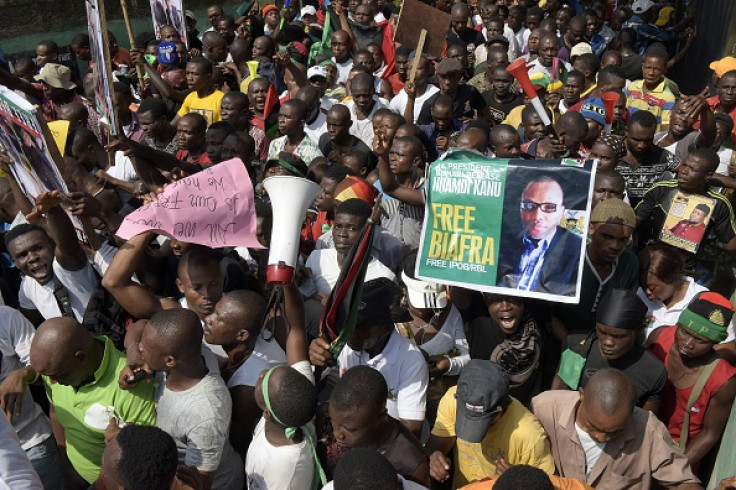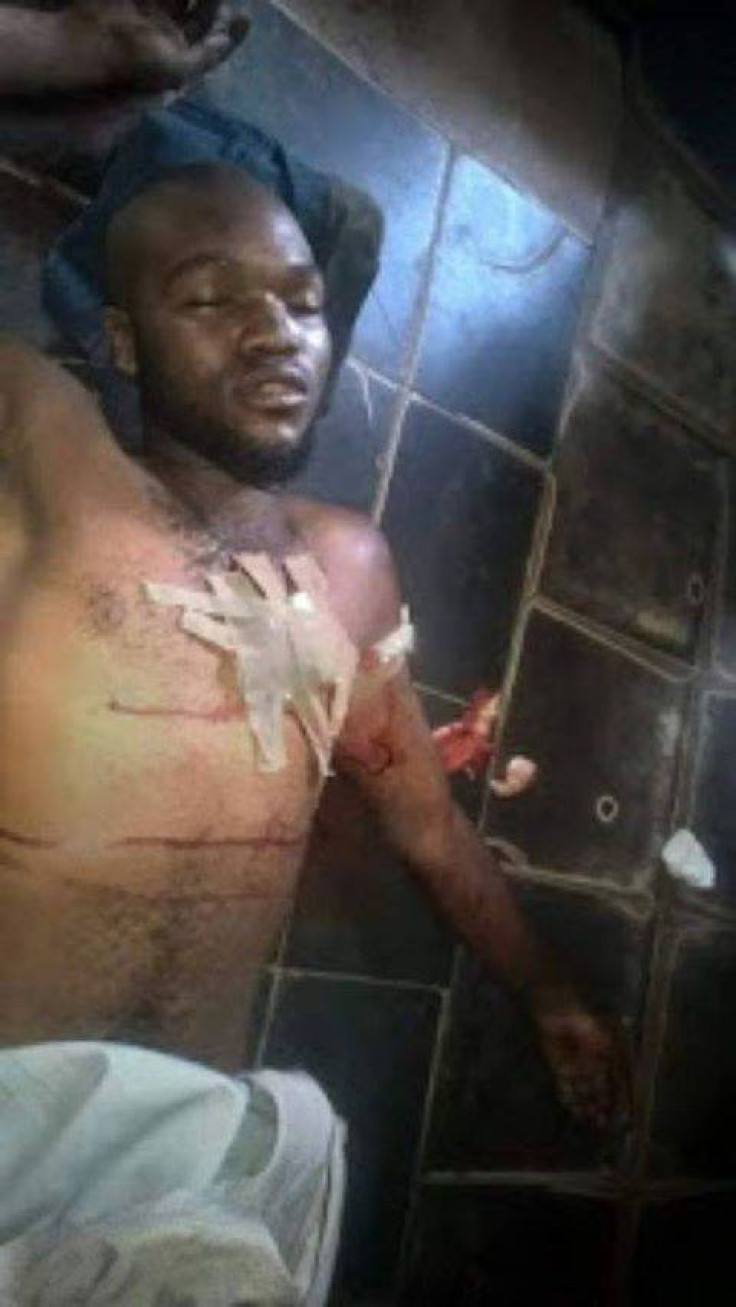Nigeria: Lawyers approach ICC to charge President Buhari on crimes against humanity against Biafrans

Lawyers are to file a complaint before the International Criminal Court (ICC) against Nigerian President Muhammadu Buhari on alleged human rights abuses against members of the pro-Biafran separatist movement.
Dutch lawyer and professor Göran Sluiter, who specialises in international criminal law, is leading the team that will file the complaint at the Hague in the Netherlands in February. Sluiter and his colleague Andrew Ianuzzi are working full time on the case, and are occasionally assisted by a team of 20 other lawyers.
Sluiter told IBTimes UK they have been representing the "Biafran minority" since the arrest of pro-Biafran leader Nnamdi Kanu in October 2015. "We have found evidence of some crimes directed against the Biafran minority in Nigeria," he said. "Violations include violence against demonstrators, torture, murder, enforced disappearances and incarcerations.

"There is a whole list of incidents and with Buhari coming into power, this is becoming more of a structured nature, exemplified by Kanu's arrest and how the government is dealing with demonstrations calling for Kanu's release."
Sluiter also made reference to the use of Skype in sourcing evidence and the issue of human rights. He said: "In addition to information on public sources, I have conducted phone and Skype interviews with individual victims as we wanted to hear the first-hand evidence.
"I also received pictures of victims of police violence during demonstrations. We will be presenting anonymous interviews with about 20,25 people, but there are many more victims.
"There has been a systematic denial of human rights of the Biafran people, who are oppressed by the government. We hope that the ICC will bring justice to the victims with serious investigations and hopefully a trial. We also hope that Mr Kanu – whose treatment is symbolic of the treatment of the entire Biafran minority in Nigeria – will be released.
Biafra movement
Thousands of people – mainly from Igbo extraction – identify themselves as Biafrans, a term used to define people living in the Biafran territories forcibly annexed to present-day south-eastern Nigeria during the British colonisation.
Pro-Biafran calls have intensified since October 2015, following the arrest of Kanu, who is also the director of Radio Biafra. In spite of a High Court ruling in favour of his release, Kanu is being detained by the State Security Service (DSS) amid allegations of torture. A day after the ruling, officials pressed new charges against him.
There is a whole list of incidents and with Buhari coming into power, this is becoming more of a structured nature, exemplified by Kanu's arrest
Pro-Biafrans have often accused the police and army of unjustified violence against demonstrators. In one of the latest episodes of alleged violence, the army was accused of killing between four and 10 people who were celebrating the high court verdict on Kanu on 17 December. During several interviews with IBTimes UK, the Nigerian police have always denied the killings.
Since Nigeria gained independence in 1960, there have been movements calling for the independence of Biafra. In 1967, the declaration of an independent Republic of Biafra triggered a three-year-long civil war that caused millions of deaths.
Government's response
When asked to comment on the allegations, Buhari's spokesperson Femi Adesina told IBTimes UK: "The lawyers have a right to their opinions. It does not make what they say gospel truth."
Referring to Kanu, Adesina said: "The president already spoke on the matter during the Presidential Media Chat of December 30." During the chat, Buhari said Kanu and former security aide Sambo Dasuki – accused of stealing money aimed for the fight against Boko Haram terrorists – will not be freed in spite of High Court rulings in favour of their release.
In an interview with Radio Continental earlier in January, Adesina defended Buhari against allegations that he does not like the Igbos, one of Nigeria's largest ethnic groups.
Lawyers have a right to their opinions. It does not make what they say gospel truth
He said: "When the president ran for political office in 2003, who was his running mate? Dr Chuba Okadigbo. And in 2007? Chief Edwin Ume-Ezeoke. If he hated Igbos would he run with them? That shows you the respect and the regard he has for Igbos, it was political reality that compelled him to come south west in 2011 and in 2015."
Referring to development projects in the south east, Adesina continued: "The second Niger bridge is on the budget in 2016. Let's recall that the last president [Goodluck Jonathan] sometime in 2011 said that he would complete that second Niger bridge before 2015. He didn't even go beyond the architectural drawing."
IBTimes UK also contacted Mike Omeri, a spokesperson for the Nigerian government, who denied any wrongdoing by the leadership. He said: "No, the Nigerian government is not committing abuses, we reject such allegations. The government of Nigerians say individuals have the right to demand for anything, but without acting to sabotage the nation.
"The government recognises the rights of the Igbo men, but it will not just watch these freedoms and rights being trampled upon by a few people. Nigeria has had a civil war. The government and 99% of the people in Nigeria do not think that we should have another one."
Among reasons that led Biafrans to call for independence are what they perceive as government marginalisation, poverty, lack of infrastructure and job opportunities. However, Omeri said the government is working to address these issues affecting all the communities across the country.
"So who is marginalising who? Who is sabotaging who? That is the question," he said. When asked about whether Kanu's prolonged detention was against the country's constitution, he said: "He is in court. The government does not interfere with the judicial process because it is a matter of civil rights. The government is not committing any abuse, what Buhari is doing is right."
Nigeria up close: Check out our Flipboard magazine
© Copyright IBTimes 2024. All rights reserved.






